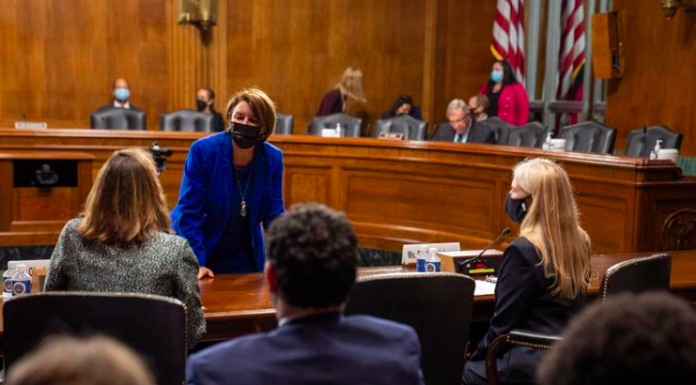(Robert Davis, The Center Square) Proposed legislation in Congress that would strengthen antitrust enforcement could cost the U.S. economy more than $319 billion if enacted, according to a recent economic study.
The study was conducted by the National Economic Research Associates (NERA), an economic consulting firm, and commissioned by the Computer & Communications Industry Association (CCIA), a free-enterprise trade organization. It is one of the first comprehensive studies to examine the impacts of legislation proposed by U.S. Sen. Amy Klobuchar, D-Minn., and U.S. Rep. David Cicilline, D-R.I.
Cicilline and Klobuchar last year introduced S. 225, also known as the Competition and Antitrust Law Enforcement Act, that seeks to overhaul the nation’s antitrust laws.
The bill would increase enforcement resources for regulatory agencies, strengthen laws that prohibit certain mergers and acquisitions, and prohibit “exclusionary conduct,” something that lawmakers have accused companies such as Facebook, Google, and Amazon of doing.
Klobuchar said last year that the bills are designed to address the U.S. economy’s “massive competition problem.”
According to NERA’s study, the bills could have massive repercussions for consumers, especially those who prefer to use e-commerce platforms to shop.
“These bills are ostensibly intended to target only large U.S. tech companies, but in reality, would have economic repercussions on small businesses and everyday products and services that U.S. consumers value,” Dr. Christian Dippon, an economist at NERA and one of the study’s authors, said in a statement.
The bills could force companies to reduce the scope of services like Amazon Prime, which the study said could create a $22 billion overall impact to consumers, or $148 per Amazon Prime member.
Dippon also said the bills would “further discourage the growth of U.S. startups and jeopardize the international competitiveness of U.S. firms” by prohibiting companies of a certain size from acquiring startups.
Trevor Wagener, CCIA’s director of research and economics, said the bills will only serve to kick American consumers while inflation is holding them down.
“American consumers are already reeling from the highest inflation in four decades,” Wagener said in a statement. “Moreover, increasing operating costs for U.S. companies would be counterproductive in the fight against inflation, the administration’s top domestic priority.”

